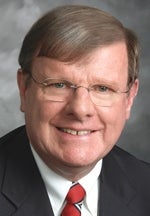The Worcester City Council took a step in the right direction when it adopted the tax fairness strategy by a 6-to-5 vote at the hearing Dec. 21. This step is part of a larger strategy that will attract and retain businesses in Worcester, increasing the commercial tax base and alleviating the burden to residents. This vote to share the tax burden more equitably, was taken by Mayor Joseph O’Brien along with Councilors Bill Eddy, Mike Germain, Joe Petty, Rick Rushton and Kate Toomey.
In The Right Direction
The chamber considers the council’s move to be bold because, in the short run, some residents may view this vote as detrimental to them and cast their future votes accordingly. In other words, these councilors could be risking their re-elections. The chamber commends them for their willingness to make difficult choices despite potential repercussions to them personally. The challenge is to educate our fellow Worcesterites as to the wisdom of the choice. These councilors get it. Short-term pain can and will result in long-term gain for all.
There is potential good news for the future as well. The city council will look at three new strategies that could further reduce the tax burden for residents and businesses alike.
First, councilors will examine the feasibility of a “tax-friendly zone” for the gaming, high-tech and bio-tech fields with the goal of attracting these industries. This strategy would attract additional research professionals — a desirable component of the city’s workforce — to the city. Additionally, skilled manufacturing will provide sustainable employment.
Secondly, councilors will explore a small-business tax break that alleviates some of the burden on the hardest-hit businesses — those who provide the vast majority of employment opportunities.
The third option, and the one with the most significant impact, is re-classifying large commercial residential properties as commercial rather than residential. Much discussion is necessary, and like other strategies, it will require state approval. This remedy has the potential to significantly reduce the tax bills of both residents and businesses. Had this happened this year, there would have been the potential for the average resident’s tax bill to go down by $200 and the average commercial tax bill to go down by $1,400. This potential option is something we must take seriously.
The Worcester Regional Chamber of Commerce is very pleased with the step taken to more equitably share the tax burden in 2011. We will continue to work hard on strategies to reduce the tax burden on the city’s business community — the backbone of Worcester.
Richard B. Kennedy is the president and CEO of the Worcester Regional Chamber of Commerce.

